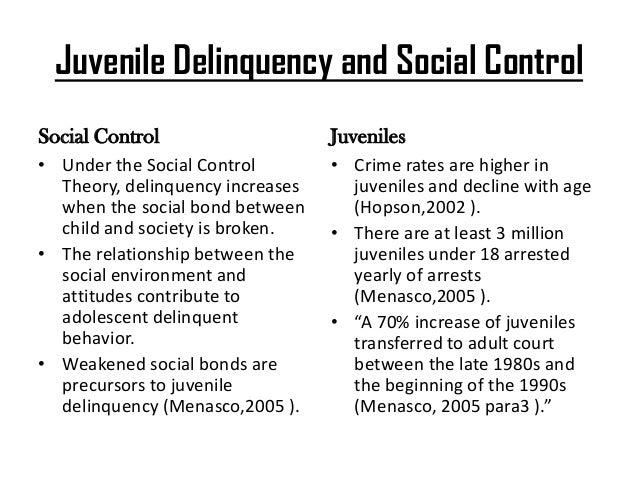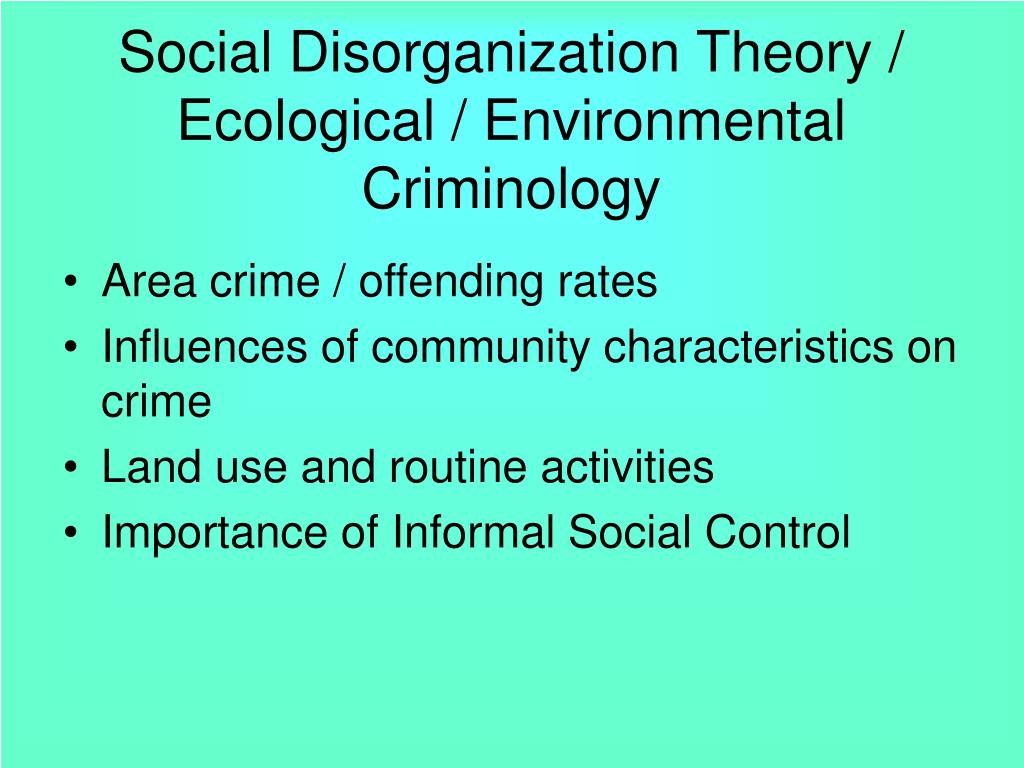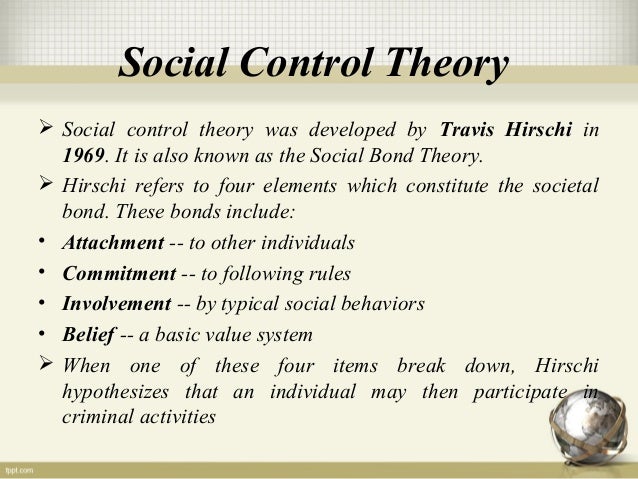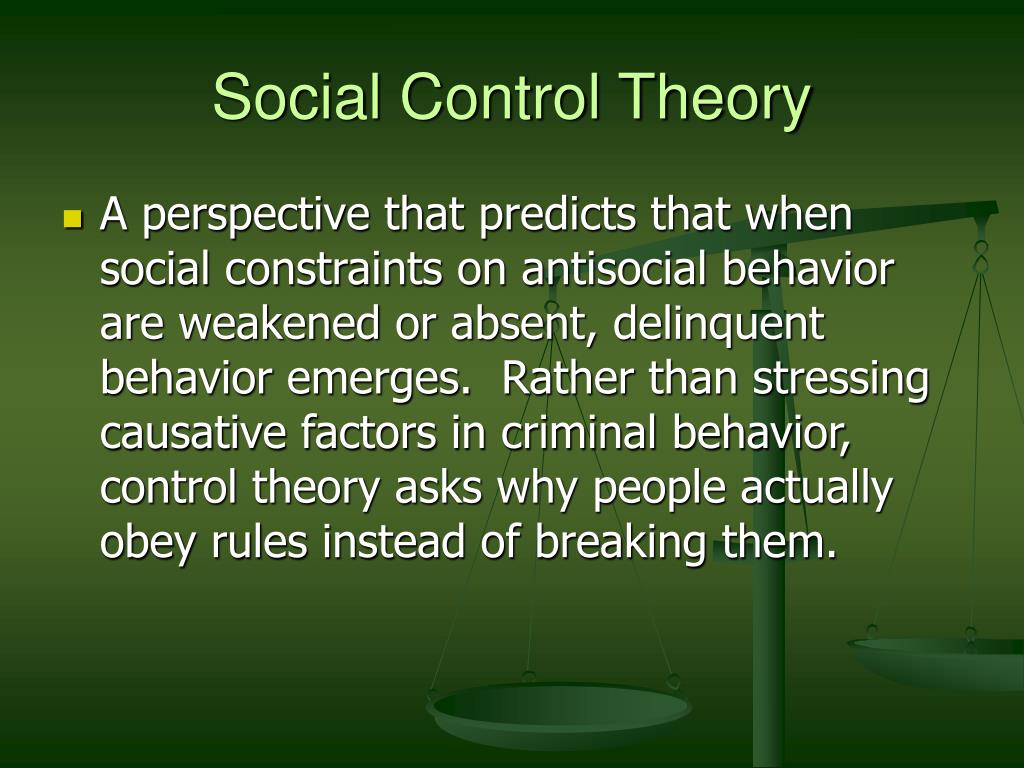Social control theory criminology

Previous limitations of social learning theory criminology A social learning theory was introduced to criminology by Robert L. Burgess and Ronald L. Akers from the University of Washington in Social Learning Theory Definition.

Social learning theory SLT is a cognitive and behavioral approach that has provided an informative theoretical framework tuskegee study summary some CCT methods Black and Mendenhall, ; Morris and Robie, Reasonable view of people and concern with the social implications of the theory. Much of the research done on the theory has been limited to drug and alcohol use, most frequently amongst adolescents and young adults, due to their concentrated, The theory is merged with a series of disadvantages that has led to the rise of criminal activities.
limitations of social learning theory criminology
The Social Learning Theory. Drug Use and Social Learning Theory. Answers the question, why?

This theory is often hard to test as it involves much vagueness as to what it is exactly that a person believes when they build a self-image. Social learning theory is one of the most popular and frequently researched theories in criminology. Retention processes.

In this article, labeling theory, social control theory criminology strain theory, and social learning theory are used to explain these murders using a case study approach. The strengths and limitations of the three theories will be analyzed that will provide small, but noticeable edges on the other. Criminology: Theory, Research, and Policy, Fifth Edition is an independent publication and has not been authorized, sponsored, or otherwise approved by the owners of the trademarks or service marks referenced in this product.
Navigation menu
The SSSL model is The level of … Bandura realized that direct reinforcement alone could not account for all types of learning, so he added a social element to his theory, arguing that people learn by observing others Nabavi, Particularly, Social Learning Theory incorporates many of the necessary elements needed to produce a practical system of change. However, it was not the original theory to be researched based on this outlook into the causes and choices of crime. While social control theory criminology learning theory comes from psychology, its tenets are very much applicable to the study of social work.
Social Learning Theory.
Post navigation
Criminologist named this the social process theory Siegel But as every theory is composed of portions of previous study and is ever evolving, Social Learning Theory was initially influenced by the other three categories of learning theory. Study AC2. Johnson, Ph. Minnesota State University, Mankato andrew. It considers that people learn from one another, including such concepts as observational learning, imitation, and social control theory criminology. Social learning theory refers to any behavioristic approach in social science that has a cognitive or behavioral focus. Victimization, Deterrence and Social Disorganization.

The life course theory is one of the developmental theories that is interesting. The purpose of this paper is to discuss the social learning theory of crime, and how it relates to certain criminal acts.]
Social control theory criminology Video
Social control theory criminology - long time
APA, Harvard, Vancouver, ISO, and other styles Abstract: Social factors have long been included in theories that aim at explaining educational inequality, for example social integration or social influence from significant others. Using social network data from the Children of Immigrants Longitudinal Survey in Four European Countries CILS4EU , I am investigating to what extent social aspects can contribute to our understanding of ethnic and gendered patterns in educational inequality. The first two empirical chapters focus on explaining ethnic patterns in school grades and in the aspirations to attend university. In these, I find a positive relationship between low school grades and extent of social exclusion, measured through the absence of friendships and the existence of social rejection from classmates. This helps explaining ethnic grade disadvantages of recently arrived migrants, since they are more likely to be socially excluded. Further, I use friendship network data to detect social clusters within school classes, and find that changes in cluster members' aspirations are relatively more important for changes in individual aspirations than the corresponding changes of classmates outside of the social cluster. These chapters use an ego-centric network approach, i. social control theory criminology.
college application essay help
2022-06-16
Gardale
Willingly I accept.

Category
Best Posts
- online dissertation writing
- Analysis Of Acts Portrayal Of Receiving The
- personal statement buy
- professional research paper writing service
- The Controversial Issue Of Abortions
- Never Been Kissed: Movie Analysis
- darkness and night
- Chocolat Chocolate Essay
- essays literature criticism theory chapter 2 review of related literature and studies
- Euthyphro And Socrates Analysis
- essay on immigrants
- Lord Of The Flies Plot Analysis






 601
601